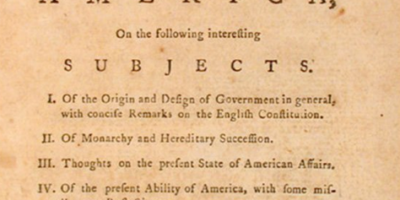By Ryan Smith
In recent years a shift has occurred in the debate over Middle East peace. A growing number of citizens in the United States and abroad are becoming increasingly aware of the injustices routinely carried out against Palestinians. Though these gains are a positive sign, more awareness and action is needed to achieve anything close to justice for Palestine.
During President Obama’s first year in office, he has taken criticism from the right and the left over his “harsh stance” on Israel, mostly in reference to the lip service the president has given to halting Israeli annexation of the Palestinian West Bank. This is misleadingly called “Israeli settlement construction” in the media, and it has involved Israel continuously constructing new settlements beyond the 1967 internationally recognized border with the Palestinian West Bank. In the process, Israeli settlements have expropriated valuable Palestinian lands with vital water resources. For Palestinians, these lands are vital to agriculture and survival.
Every U.S. administration involved has not only looked the other way, but provided the resources to ensure Israel can continue, and Barack Obama has been no exception. Let us consider how “harsh” President Obama has been on Israel’s conduct. According to Noam Chomsky’s Hopes and Prospects, in then candidate Obama’s speech to the American Israeli Public Affairs Committee, Obama went beyond even Bush commitments to Israel saying, “Jerusalem will remain the capital of Israel, and it will remain undivided.” This statement, as Chomsky points out, had campaign personnel scrambling to claim it was taken out of context: Israeli encroachment into East Jerusalem has been a central barrier to resolving the Israeli-Palestinian conflict.
Chomsky has also detailed Obama’s duplicity in regards to international humanitarian law as it applies to Israel. When the terror attacks on Mumbai, India occurred shortly after the 2008 election, the President-elect rightly condemned the attacks and the “hateful ideology” behind it. However, when Israel attacked the Gaza Strip about a month later, the President-elect’s stance was “there is only one president at a time.” While the Mumbai attacks were horrific, with more than 160 people killed and over 300 injured in one night of violence, the Israeli assault on Gaza claimed more than a thousand lives in little less than a month. Both incidents were in full breach of international humanitarian law. Research by groups on the ground in Gaza after the assault suggest that, amongst other munitions obtained from the United States, the Israelis used white phosphorus chemical weaponry. This put the nation President Obama inherited in direct violation of international humanitarian law. And yet, to date there is no signal Obama has intentions of altering the status quo of U.S.-Israeli relations.
Another striking example of neglect for Palestinian rights lies within the U.S.-Israeli rejection of the 2006 Palestinian elections. Leading up to the elections Bush administration officials lauded the elections as progress towards a peaceful two state solution. Despite the U.S.-preferred candidate Mahmoud Abbas’ victory as Prime Minister, the militant faction Hamas won a majority seats in parliament to the dismay of Washington. The United States and Israel rejected the elections as illegitimate, despite the approval of a non-partisan election supervising agency established by Jimmy Carter.
The two countries, Israel and the U.S., did not dismiss the elections on grounds of corruption. In fact, no real reason was given other than Hamas was not an acceptable choice in the supposed free Palestinian elections. This is a blatant example of the U.S. policy of rejecting any political action, democratic or not, that does not conform to U.S. government intentions. President Obama’s rhetoric on Middle East peace has not suggested he’s willing to break from standard U.S. policy here either.
One must take a sober look at the role Israel has played in global affairs since its inception in 1948. Right on the edge of the world’s largest energy resource rich region, Israel has served as a base of U.S. power and influence. Particularly since Israel’s 1967 and 1973 wars, during which Israel adopted an expansionist policy, the United States has worked closely with Israel on expansionary military and intelligence operations, not to mention the work it has done maintaining a virtual police state in the Gaza Strip. All this has been made possible by the more than $3 billion in economic aid, along with billions in military equipment or logistical support, that the U.S. provides in a given year. This puts not only Israel, but also the United States, in consistent violation of the Universal Declaration of Human Rights.
The time is now that we ask a significant question; are the costs to the U.S.-Israeli relationship worth the benefits? Arabs see the U.S. as enablers and supporters of Israeli actions, both legal and illegal. This fuels global jihad. U.S. foreign policy is actually causing our biggest foreign policy challenge. By disengaging from occupying lands where the population does not want our presence, we can defuse tensions with would be combatants, while saving billions in maintenance and personnel costs to maintain that presence. By encouraging Israel to do the same thing in the Palestinian West Bank and Gaza Strip, which is the overwhelming international consensus, the U.S. would be showing the world a commitment to Palestinian rights and sovereignty, and to Israeli disengagement. This would take the proverbial wind from the sails of global jihad, not to mention open diplomatic doors with Iran, who says it will accept any agreement the Palestinians accept.
If all of these events take place, it could open the possibility of negotiating a desperately needed Nuclear Weapons Free Zone in the Middle East and elsewhere. The NWFZ is accepted by every country in the region, including Iran; however it has been consistently opposed by Israel and the United States. All of these steps are not only a roadmap to Palestinian justice, but Israeli-Palestinian peace, and global peace. We must stay vigilant on the Obama administration, let them know where you stand on this issue, it could mean so much.




Leave a Reply